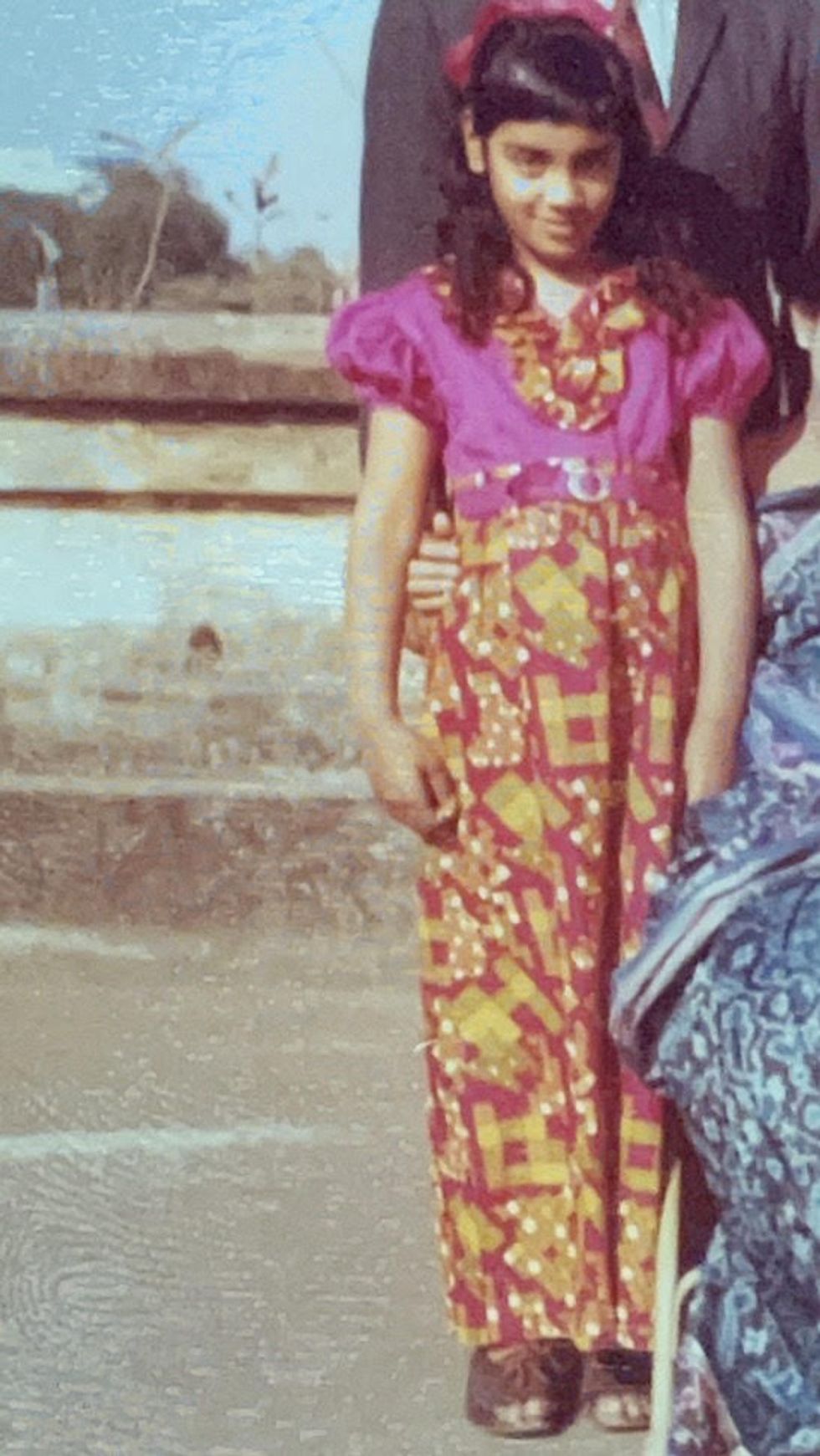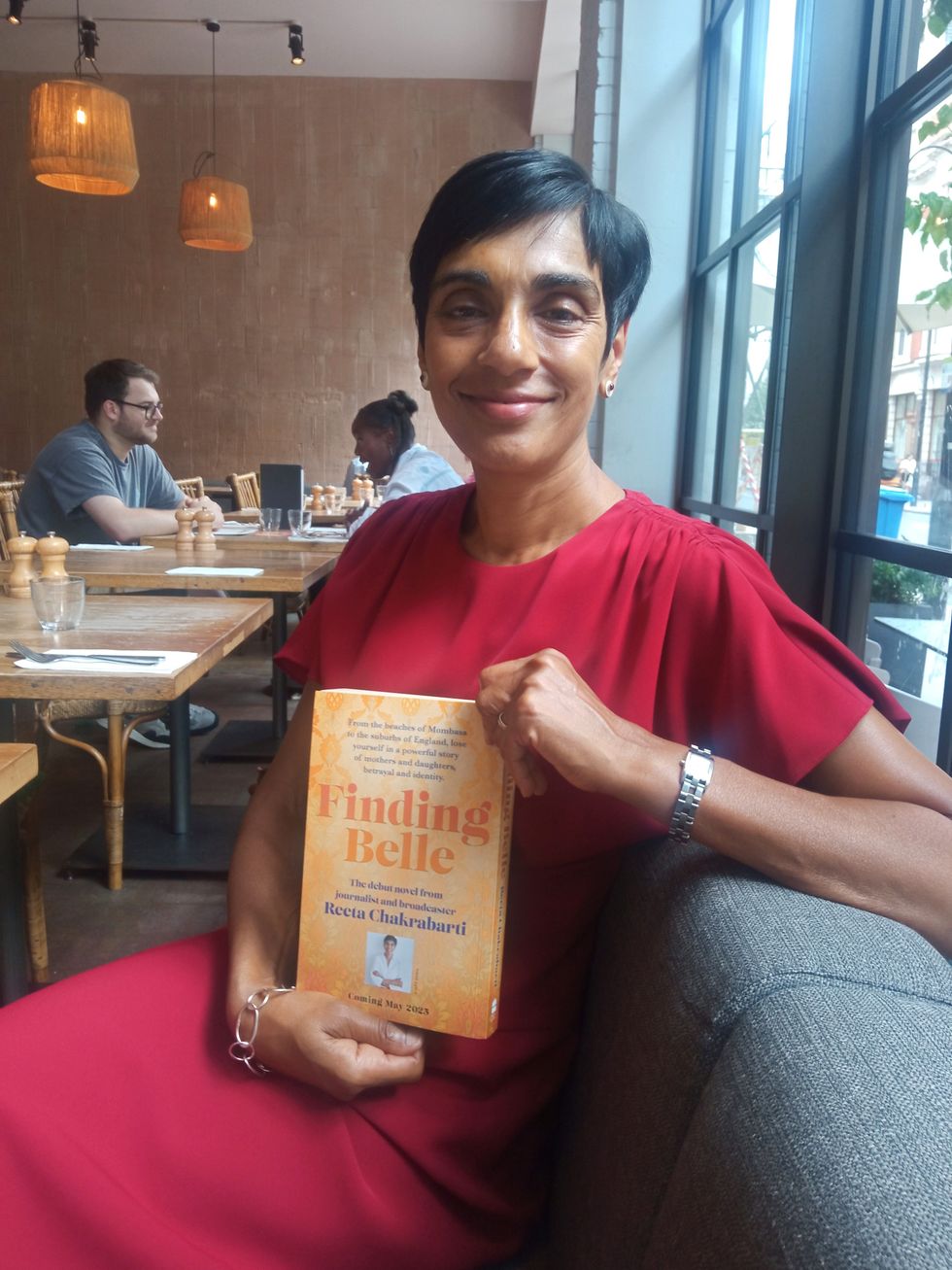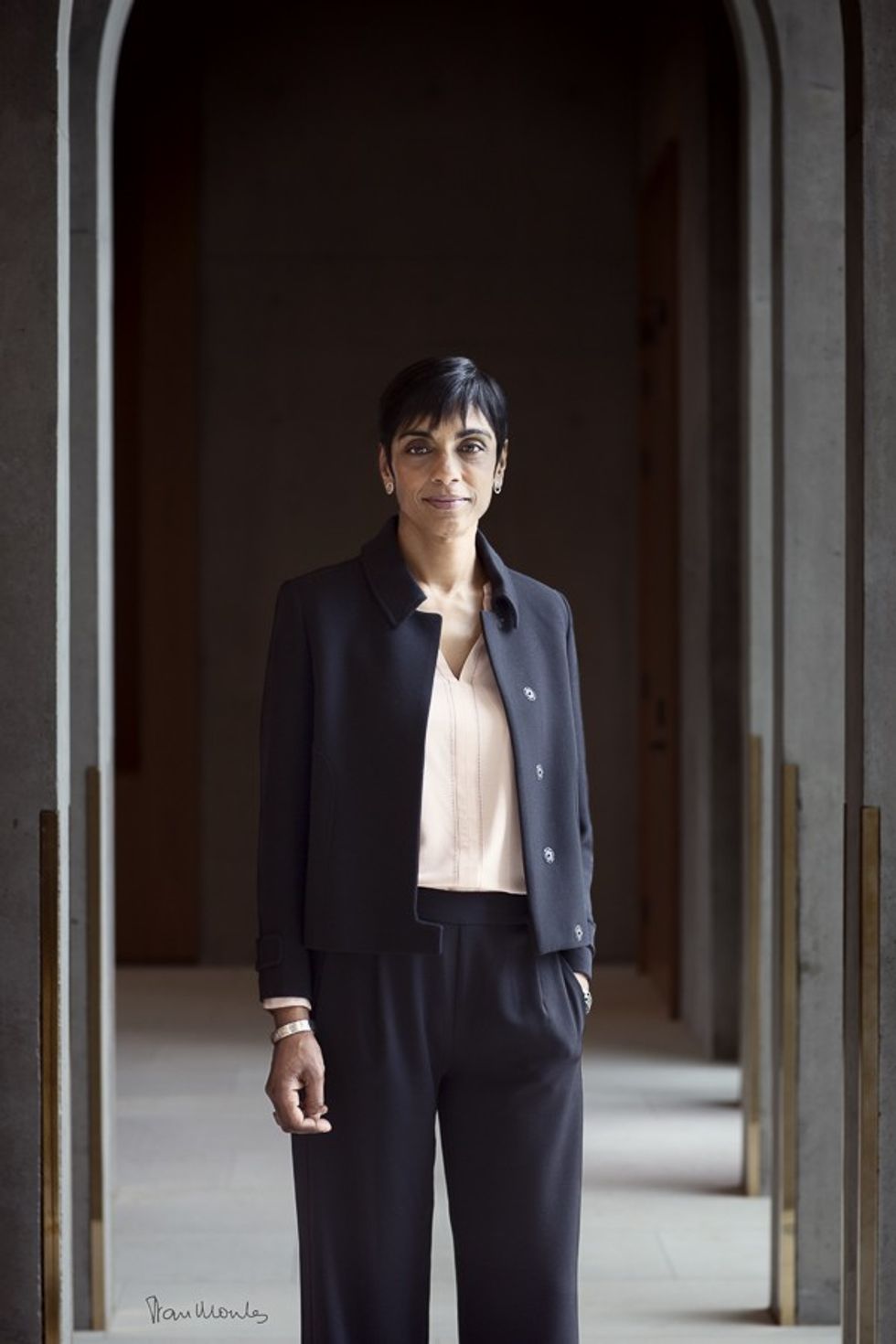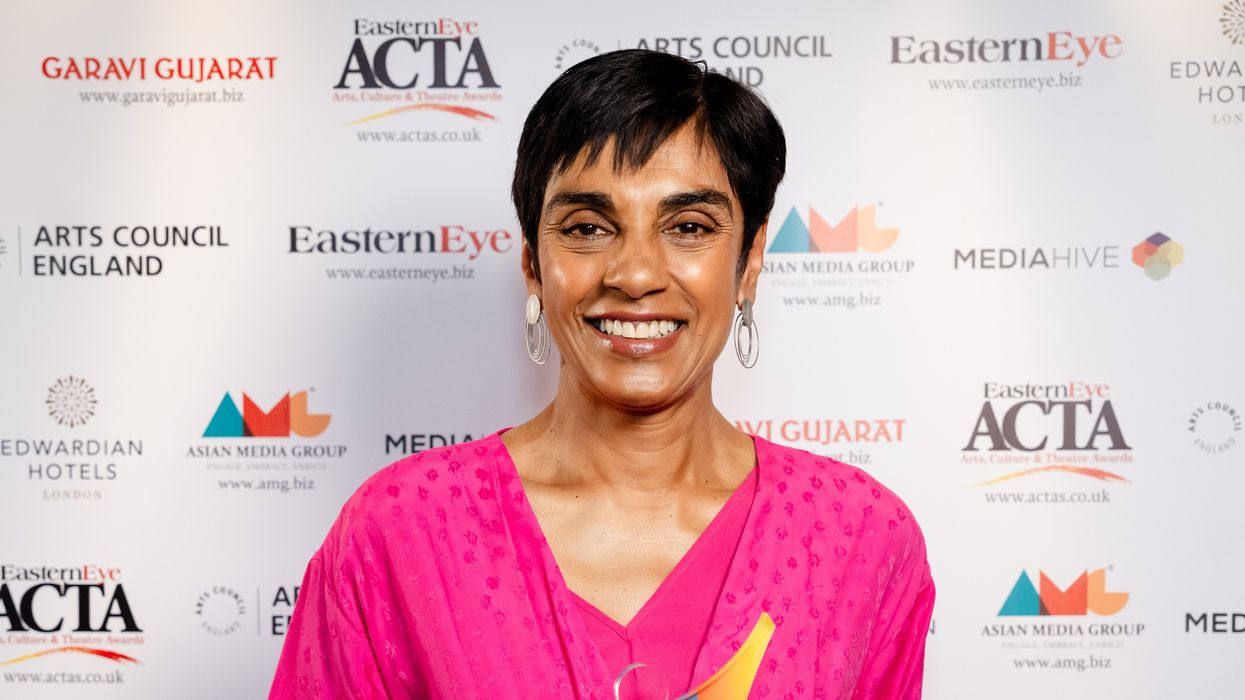REETA CHAKRABARTI is wonderfully eloquent when talking to Eastern Eye about her debut novel, Finding Belle, which she says has been “inspired” by Charlotte Brontë’s Jane Eyre “rather than a retelling of the classic published in 1847”.
To most people in Britain – and indeed across the world – Reeta is the calm, authoritative, reassuring presence on the BBC, which she joined in 1994. Indeed, in March this year she was named “Best Presenter” in Eastern Eye’s Arts, Culture & Theatre Awards (ACTA). After speaking to Eastern Eye last Tuesday (15), she headed back to Broadcasting House to front the BBC’s flagship News at Ten as chief presenter.
A different picture of Reeta emerges as she talks about Finding Belle, which is quite a dark novel that tells of the effect of schizophrenia on Belle, an Indian woman who has met and married a handsome Englishman, Fairfax, in Mombasa, before uprooting to suburban England. The tale is told by their daughter Mivvi, who witnesses the collapse of her parents’ marriage and her mother’s descent into almost a kind of madness. Belle also miscarries. What makes everything worse is Fairfax’s infidelity and cruel refusal to give his wife medical treatment.

At school, Mivvi is humiliated by a couple of blonde twins, who chant, “Mivvi! Superstar! How many boys have you kissed so far? 24? Maybe more? Ten on the bed and the rest on the floor!”, adding, “Paki! Paki! Blackie, Mivvi, Paki!”
She was “determined to be Daddy’s daughter, not Mama’s,” but, alas, all the soap in the world cannot make her complexion fair and lovely.
Reeta said she has always been a bookworm and read Jane Eyre at the age of eight. Five novels she would take to a desert island would include Jane Eyre, along with Mary Shelley’s Frankenstein; or, The Modern Prometheus; Never Let Me Go by Kazuo Ishiguro; Tender Is the Night by F Scott Fitzgerald; and George Eliot’s Middlemarch, A Study of Provincial Life. She considered herself to be “an author in search of a novel”. During Covid, she realised it was “now and never”.
She said Jane Eyre “is the book I have read most”. When she was growing up, she was “consumed by the romance between Jane and Rochester”.
“But then as I got older, I started to think Rochester is quite a bastard because he locks up his wife in a cellar. She’s ill, very ill, but instead of finding a treatment, he locks her up. Then he leads Jane a merry dance. The themes within Jane Eyre are of secrecy, a marriage where the wife becomes very mentally ill and is hidden away. She’s a shameful secret, and our attitudes to mental illness these days are entirely different. So that’s where my novel comes from. Schizophrenia is a particular form of psychosis whereby somebody, who may lead their lives fairly normally, can have delusions so they hear voices or imagine scenarios that are not real. This is the condition that I decided to give my fictional character, based on the classical reference to Bertha from Jane Eyre.”
Finding Belle “is not ultimately a bleak novel”, she said.
Mivvi, a bright girl at school, goes off to Bristol to study French (Reeta herself read English and French at Exeter College, Oxford) and finds friendship and marriage with an Indian boy, Ashish. After they have a baby, there is a brief sojourn through Kolkata, a city Reeta knows well.
Reeta’s father, Bidhan Kumar Chakrabarti, a junior doctor, and mother, Ruma, a civil servant, arrived in Britain in 1960. Now 90, her father worked for the NHS, ending up as a surgeon. Her mother passed away in 2016. Reeta’s younger sister, Lolita Chakrabarti, is the wellknown actress and writer (she adapted Life of Pi for the West End).
“My father particularly was very ambitious for me,” said Reeta. “He wanted me to be a doctor and continue the tradition because his father was a doctor and his father was a doctor and his father was a doctor. His older brother was a doctor. I was quite happy to continue the line. Then one day, he took me to theatre to see an operation. I was 13, and he was operating, and I remember being very overcome by the environment, and I fainted to his mortification.” However, he was “over the moon” when Reeta got into Oxford.
In Finding Belle, she initially set Mivvi’s childhood in the 1990s but pushed it back into the 1970s at her editor’s suggestion to reflect her own schooldays.
Although born in London, Reeta moved when she was five to Birmingham, where she attended various state schools before joining King Edward VI High School for Girls.
“1970s Britain was a harsher, cruder place when it came to race,” she said. “I was brought up in Birmingham and although I did not experience very harsh racism there was a lot of teasing at school. This was a few years after Enoch Powell’s (1968 ‘Rivers of blood’) speech, the National Front was quite strong there. Football hooliganism was quite tainted by racism. This is the atmosphere I was trying to recreate from my memory of being a child in the 1970s.”

Her parents did consider returning to Kolkata.
“We made two attempts to live there,” she remembered, “once just for a few months, then for 18 months. When I was 15, we went back to Kolkata. Until I was 16 and a half, I went to the international school there. I did my O levels there. So, I know Kolkata quite well. I still go back quite regularly now. My uncles, aunties, and cousins are all there. And the descriptions that I have of Kolkata towards the end of the novel are very much my accumulated feelings about the city.” In Kolkata she is happy not to be treated as the big BBC star from London but instead, “I am somebody’s niece, the eldest in our group of cousins. These are important relationships for me. My uncles range from their late seventies to mid-nineties. I feel close to them. I feel my Bengali identity increasingly strongly.”In the 1970s, she, like other Asians or Afro-Caribbeans, felt “a strong need to assimilate and be British. I see younger colleagues who don’t feel the need to assimilate in quite the same way. They can have mixed dual heritage much more openly. I can, too, now. Is that a function of changing society or is that because I am older and more confident? I am at the stage where my Indian heritage is very important to me, and so I go back frequently. My three children are British. I use the word British (rather than English) because my husband is Scottish. My children were born here. They are mixed race. They are part of the new Britain.

“When I was a child, I used to be teased for having Chakrabarti as a surname. It’s now part of the national fabric. People know how to spell it as well.”
She would encourage young people, especially Asians, to go into journalism: “It’s a fantastic career. Some people say it’s an uncertain career, but I’m a great optimist. Each generation remakes an industry for themselves, don’t they? We’re some way from being as integrated and as equal as we should be, but we are so much better than we used to be. I’m, by and large, very proud of the way in which the country has developed.”
n Finding Belle is published by HarperCollins. £16.9




